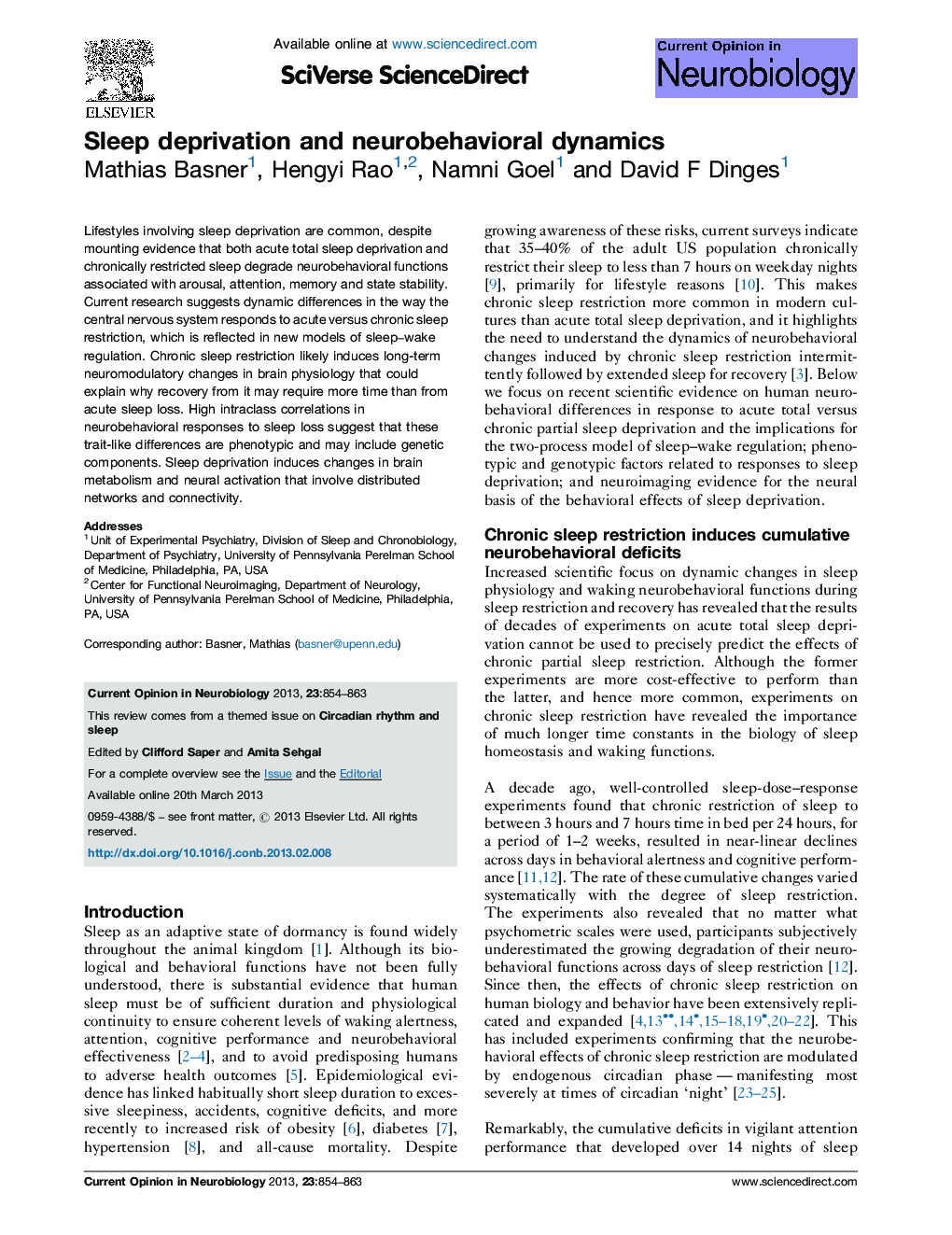| Article ID | Journal | Published Year | Pages | File Type |
|---|---|---|---|---|
| 6266628 | Current Opinion in Neurobiology | 2013 | 10 Pages |
ⶠAcute total and chronic partial sleep loss have common and unique effects on brain and behavior. ⶠChronic sleep loss and recovery from it induce dynamic changes in physiology and behavior. ⶠMathematical models of sleep-wake regulation must include chronic effects of sleep duration and circadian modulation. ⶠVulnerability to sleep loss is substantial, apparently phenotypic, and therefore likely genetic. ⶠNeural bases of the effects of sleep deprivation involve distributed networks and connectivity.
Lifestyles involving sleep deprivation are common, despite mounting evidence that both acute total sleep deprivation and chronically restricted sleep degrade neurobehavioral functions associated with arousal, attention, memory and state stability. Current research suggests dynamic differences in the way the central nervous system responds to acute versus chronic sleep restriction, which is reflected in new models of sleep-wake regulation. Chronic sleep restriction likely induces long-term neuromodulatory changes in brain physiology that could explain why recovery from it may require more time than from acute sleep loss. High intraclass correlations in neurobehavioral responses to sleep loss suggest that these trait-like differences are phenotypic and may include genetic components. Sleep deprivation induces changes in brain metabolism and neural activation that involve distributed networks and connectivity.
